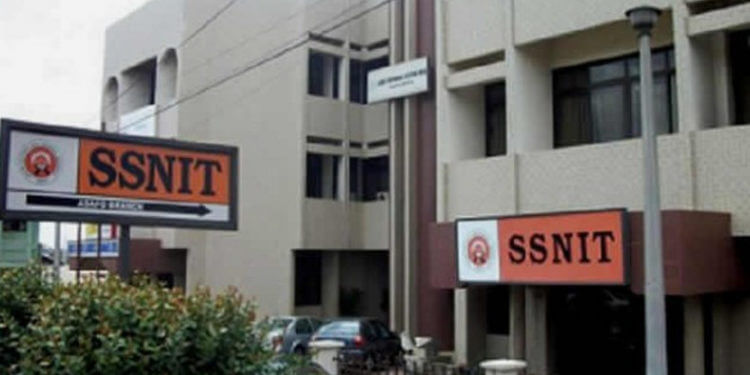The Social Security and National Insurance Trust (SSNIT) has recovered more than GH¢378 million in less than three years from prosecutions made on employers and organisations after a forensic audit of their books revealed they have defaulted in paying monthly contributions of their workers for some years now.
A breakdown of data shows that, in 2017, SSNIT recovered GH¢111.1 million from 17,320 cases initiated against employers and organisations; recovered GH¢158.7 million in 2018 from 19,914 cases initiated; and again has retrieved GH¢108.2 within the first half of this year against a target of GH¢191.4 million, meaning more than 56% of the 2019 target has been achieved.
The monies were recovered through a mass inspection exercise carried out by SSNIT which revealed that a lot or employers were, either not paying monthly contributions of their workers at all, or not paying in full. The defaulting employers and organisations were given the chance to negotiate a payment plan with SSNIT to avoid prosecution. However, those who did not respond to the notice or comply with the payment plan faced prosecution, hence, the retrieved funds.
Commenting on this, General Manager, Operations, SSNIT— Kingsley Adjei Manu, said the purpose of the exercise is to make SSNIT more liquid so that it can honour its monthly pension payments to retirees, and also ensure compliance.
“These are people’s contributions and when they go on retirement and the employers have not paid, it creates a problem for both the retired worker and SSNIT. So we have decided that at the end of every quarter, we will go through our books and carry out this exercise,” he said in an interview with the B&FT.
He, however, emphasised that the court action is always the last resort after all opportunities given to the employer, which includes a flexible payment plan, have been exhausted with no positive results.
“We give them the chance to pay based on an agreed payment plan. But if they don’t pay, and because we also need the money to pay our monthly contributions, we are left with no option than to take them to court. The court action is the last resort; we don’t rush in prosecuting people, we always have a discussion with them to agree on a payment plan,” he added.
Mr Adjei further advised employers and organisations to honour their monthly obligations to SSNIT in order to avoid paying through the court system which attracts additional penalties.
With the current trend of performance, SSNIT is confident that it will recover the remaining arrears for the year.
Credit: B&FT




